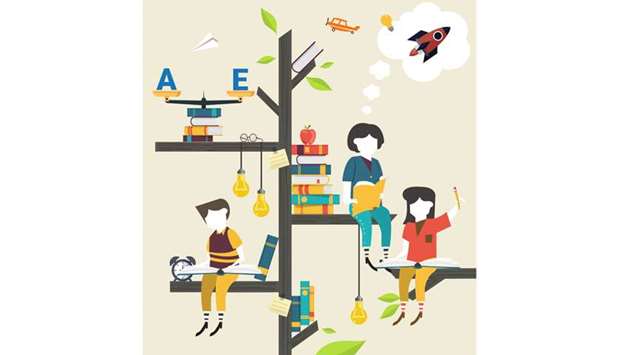Hamad Bin Khalifa University Press (HBKU Press) has come up with some creative ways to engage in literacy-centred activities with children and families amid the ever-changing situation relating to Covid-19 that has thousands in Qatar practising social distancing at home.
“HBKU Press is committed to providing our community with the resources they need to get through these challenging times. We continue to promote literacy as the key to develop knowledge and potential and as a means to participate fully in the community and wider society,” explains Muneera Saad al-Romaihi, community outreach specialist at HBKU Press.
“We’re ensuring that our books are made available as eBooks and audiobooks so that access to a variety of literary options in Arabic and English across all genres is still available. And with this list we hope to promote the idea that literacy – reading and writing – can be an important bonding activity between children and their parents while at home together.”
Jameela Sultan al-Mass al-Jassem, Arabic Editor at HBKU Press, who worked previously with the Ministry of Education in Qatar and was responsible for contributing to Arabic language curricula, acknowledges the challenges that this time brings.
“We have to adapt our expectations of our children and of ourselves,” al-Jassem explains. “It is a difficult time for us all, and children especially may be impacted by the sudden change to their routine and the lack of a sense of normalcy.”
Al-Jassem suggests the following activities:
Drop Everything and Read (DEAR): Set aside time every day when everyone stops what he or she is doing and reads for 15 minutes. Even parents. The idea is to turn the individual activity of reading into a shared experience. Take turns reading from the same book out loud. Have older children read to younger kids and vice versa. It can be a great way to calm down if tensions are running high.
Sharing favourites: Have each one of your kids make a list of their favourite books. Write them down on a separate piece of paper and have each member of the family draw a book from the lot. Then read your chosen book, either together as a family or apart. If you don’t have it at home, get it as an eBook online. When you’re done, talk about what you’ve read sharing what you liked or disliked about the book. This is a great way to expose each other to new reading material.
Summary: Have your kids summarise what they’ve read and write it down in a log to share with their teachers when they get back to school. TIP: If you’re kids are too young, try re-enacting the story with homemade puppets based on the characters in the books. Use materials you find around the house – it doesn’t have to be fancy. Puppets can help children pay attention and encourage imaginative play.
Aspiring authors: Encourage your kids to think up creative stories and write them down. Don’t worry too much about spelling and grammar – just get those ideas flowing! Who knows when the next best-seller will be born?
Lessons in language: One of the biggest concerns in multi-lingual households is that one language always seems take precedence over the other. Try dedicating reading time to both Arabic and English language books, or books in other languages, to balance your children’s linguistic development.

